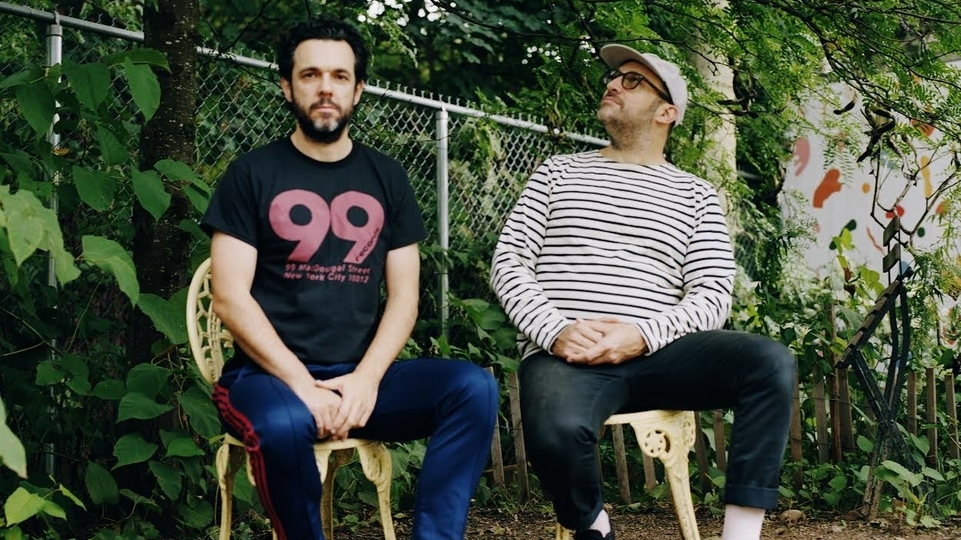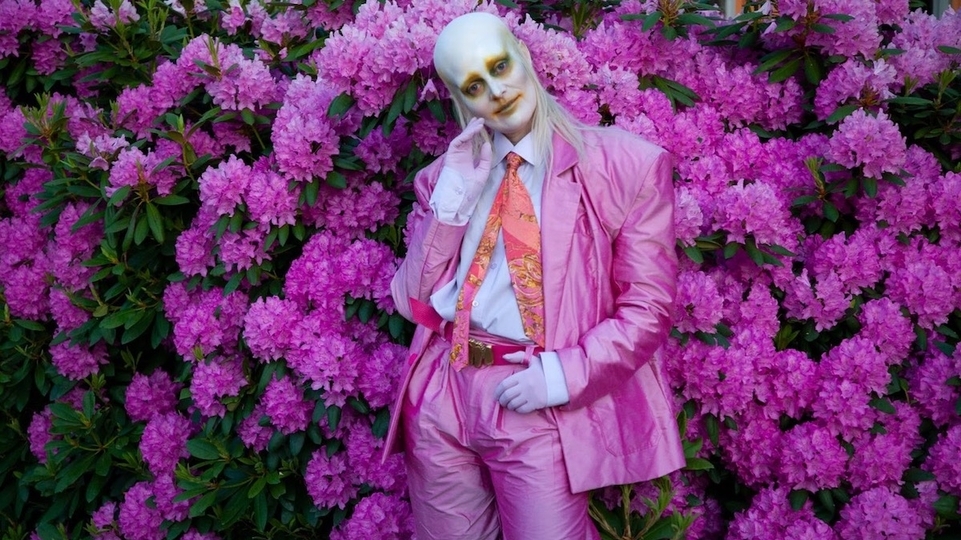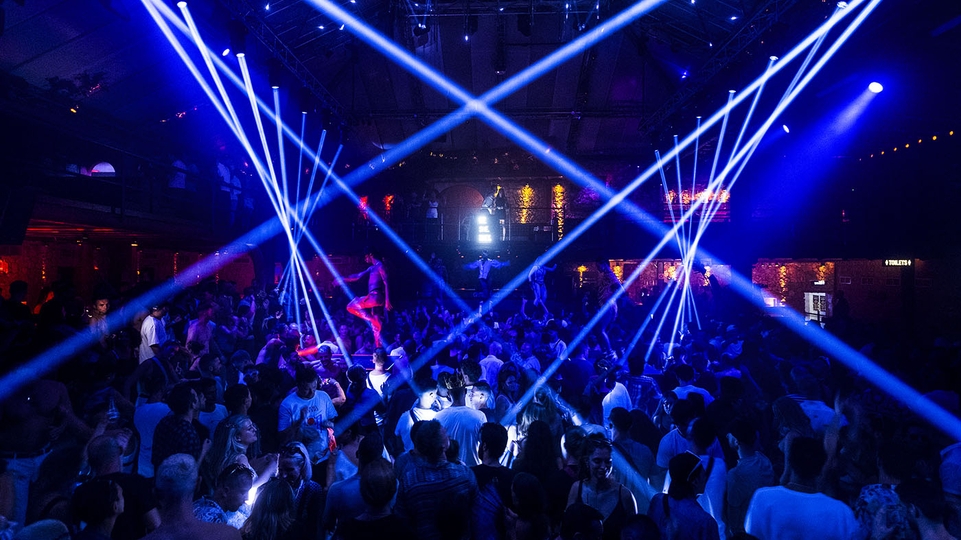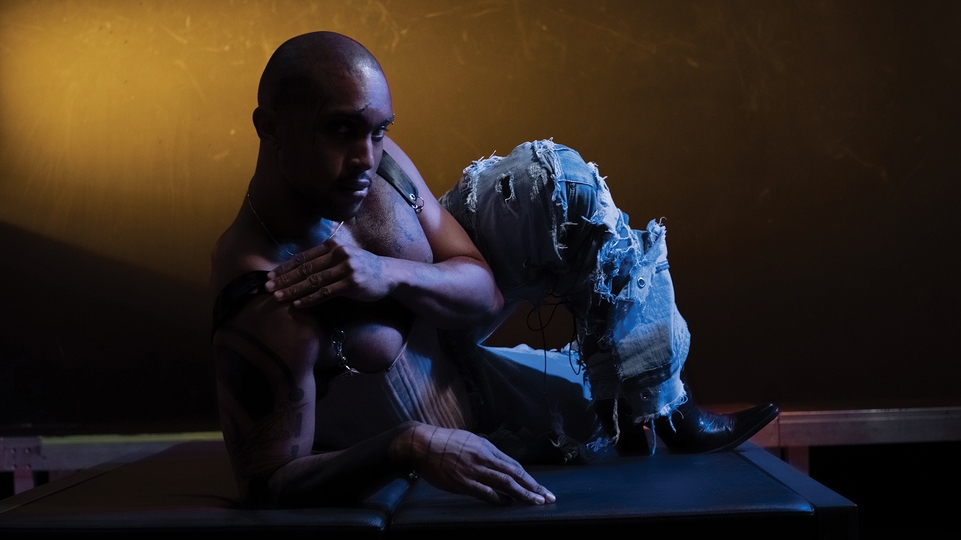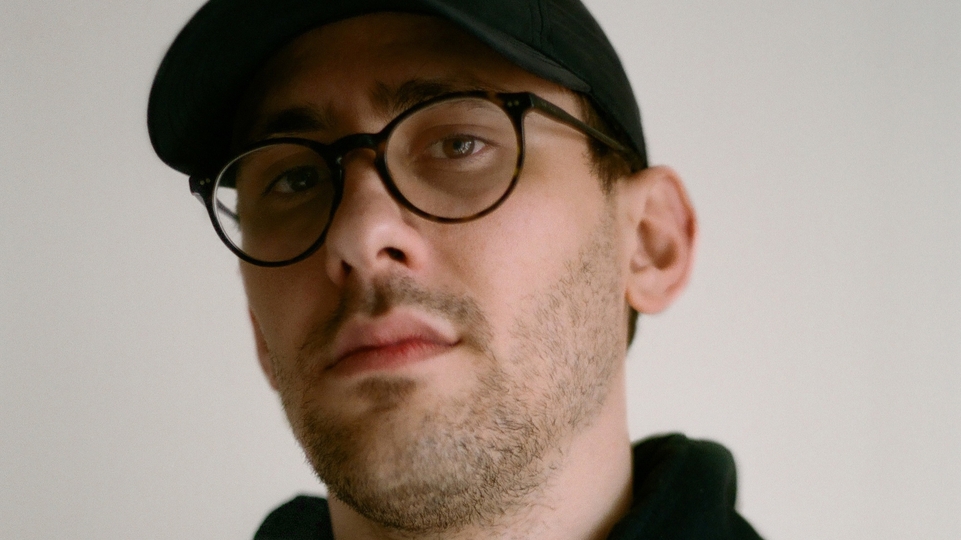
Avalon Emerson: magickal thinking
Before COVID turned the world upside down, Avalon Emerson was so busy DJing, touring, producing and remixing, she was close to burnout — but the lockdowns gave her time and space to reevaluate. Now living in rural upstate New York and working on her debut album, she tells DJ Mag about how the weirder side of pop and “the powerful, transcendental, fun, necessary experience of people getting together in a room” drive what she does
Eighteen months ago, some of Avalon Emerson’s wishes came true. The first was for 2020 to be “the year of prioritising sleep”, during which she would go on tour far less frequently. The second was to be closer to her girlfriend, Hunter, who had lived a 10-hour flight away. In describing these satisfied wishes, Avalon tells us that they’d been granted by “the monkey’s paw”. In the short story of the same name by W.W. Jacobs, a man is talked into making a casual wish for money, but ends up losing far more than he could have reasonably expected.
So it went here: Avalon and Hunter locked down together last year in a cramped 500-square-foot apartment in New York. Flying to DJ, or being in a nightclub, were out of the question.
“Right now, I’m primarily living upstate, a couple hours north of the city,” says Avalon, speaking from her guest bedroom on Zoom. “I didn’t realise that I was going to move so permanently from Berlin. I guess it’s still a little bit up in the air; it’s like everything. Not to immediately jump into COVID” — an eye-roll traces the frames of her Navigator spectacles — “but it makes planning so impossible, you know? Even two months out, I feel like I can’t plan my life. Without a level of certainty in saying this, yeah, I’m living here now. I’ve never lived in a rural place, but I really like it. We have our own little well and a septic tank. Septic systems and cesspools are the most enjoyable thing to learn about.”
We agree not to dwell on that subject, but there’s more to know about the wilderness on Avalon’s doorstep. There are deciduous trees — maple, ash, oak — as well as coniferous trees like pine. “Things with little bristly brushes,” she says. “We have an apple tree. It’s beautiful. I’m trying to learn more about trees and how to take care of them.” She cracks open a seltzer in a silicon sleeve as she describes how this all sounds. “There’s also a tiny pond, with maybe seven frogs. They make funny noises. And we have a turtle, which doesn’t make any noise. All kinds of crickets and cicadas. All kinds of birds. Hunter saw a bald eagle recently. They’re huge and beautiful, and it’s funny to see them, just... roaming around.”


“I always had a hard time defining myself, especially earlier on. Now, I feel, the problem of defining myself hasn’t gone away; it’s just the necessity of it has gone away... I feel like I can hold my own at a lot of different venues and parties. I’m proud of that.”
Expansive Sound
This gentler pace of life was probably overdue, in any case. In the last few months of 2019, Avalon was spinning a lot of plates: gigging every weekend, working on a remix for Robyn (and some other, as-yet- unannounced projects), putting together a ‘DJ-Kicks’ release, her first commercial mix CD, and organising a transatlantic 12-date tour across 2020 for her event series, 9000 Dreams.
By that point she was one of dance music’s most sought-after DJs, playing to packed crowds on the world’s most esteemed dancefloors: in June and July 2019 alone, she played Primavera Festival, Robert Johnson, Panorama Bar, Nuits Sonores, Circoloco and Lux Fragil.
But something had to give. To cap off a restless 2019, Avalon played two shows on New Year’s Eve, in Pennsylvania and New York. “I was approaching burnout, for sure,” she says. She left Berlin a few weeks later for what was supposed to be a longish but temporary break. In Los Angeles, Avalon was hoping to “level up” her production skills, make music for other artists, and have more of a life away from DJing. Within weeks and after only a couple of studio sessions, those plans — and everyone else’s — crumbled.
“And then stuff was closed as hell. So we were like, ‘Okay, what’s going on?’ Hunter still has family back in New York. It was pretty bad there. We were like, ‘Let’s go back to New York because there’ll be more of an actual home base’ — at least for her.”
They packed everything they could into a black 2012 Scion and drove across the I-70 highway, picking up friends and filming the trip as they went. The footage from that drive became the video for ‘Long-Forgotten Fairytale’, an idyllic collage of desert plains, looming canyons, and lots of open road.

Something similarly expansive has always suggested itself in Avalon’s music. Her breakthrough, 2016’s ‘The Frontier’, a track whose cloud-skimming melody was far too yearning and heartfelt for ‘techno’ to feel like an appropriate tag, seemed to reflect a moment of flux in dance music. Club genres were dissolving into each other — or more accurately, escaping themselves and the house-and-techno rut of the mid-2010s. Fragments of EBM, new wave, industrial, breakbeat, jungle, pop and lots of other club or club-adjacent styles were gradually spicing tracks, and therefore DJ sets, including Avalon’s.
“I always had a hard time defining myself, especially earlier on,” Avalon says. “Now, I feel, the problem of defining myself hasn’t gone away; it’s just the necessity of it has gone away. But I play a lot of disco and house. I play on techno line-ups. I feel like I can hold my own at a lot of different venues and parties. I’m proud of that.” Pointing out that artists who move to Berlin tend to absorb the city’s techno scene is so clichéd that the next meme you’ll see about it will be in a museum cabinet.
But Avalon’s distinctive DJing has been one of the more novel surprises of a familiar migration. Take a gig she played at HORST festival in 2018: on an ark-like stage thick with fog and cigarettes, Avalon, leaning over the console as though bodyboarding through a wave, rode through gutsy, expressive samples of Janet Jackson, Art Of Noise, Colette and Missy Elliott. There were few, if any, techno tracks to speak of, but as one song surged into the next, the source of that energy was unmistakable.
“The six years I lived in Berlin definitely imparted some of that on me,” she says, “but I would have never really thought of myself as a techno DJ, ever. The problem with words like techno or house or disco or trance, it means different things to different people of different ages and different locations. For someone from Mannheim, their idea of techno is very different from someone who lives in South Africa.” She’s particularly opposed to identifying with a Eurocentric style she describes as having a “fast four-to-the-floor kick, and it doesn’t matter [what it sounds like] as long as it’s hard.”
Avalon adds that it was in Panorama Bar, a club she calls a “gay mecca for our age”, where she “learned, really, how to DJ... that’s very much a part of my story.” If anything, Avalon’s DJing more readily invites associations of feeling. On classic cassette mixes like Terry Mullan’s ‘New School Fusion Vol. 2’ or Woody McBride’s ‘Live At Beyond, Chicago’, there’s an off-its-face mystic rave magick found in the American Midwest’s fabled mid-’90s scene.
In trippy big-room moments, Avalon is capable of casting a similar spell. Take her fantastic set at Mutek’s 2018 edition, its swooshing acid phrases and hurdling breakbeats filling the room with an ineffable glow; one section with serpentwithfeet’s ‘messy’, surrounded by a Skee Mask breakbeat that rears up like an impatient horse, takes on an almost spiritual power.


Weird Pop
Avalon came up in the blog house era, a font of dodgy mp3 rips and dance music’s last great bootleg hustle. While studying in her home state of Arizona, Avalon DJ’d with La Roux remixes to other indie-dance kid plugged into Hype Machine and “pre-Condé Nast Pitchfork”, as she told The Face last year. In that light, it’s easy to see how her ear for moonshot melody, high-stakes drama and pop-flavoured hooks might have been shaped by, say, Cut Copy, The Rapture and The Knife.
Conversely, what Avalon’s ‘DJ-Kicks’ mix from last year shows is how incomparable her DJing has become. The opening track, a cover of The Magnetic Fields’ ‘Long- Forgotten Fairytale’ on which Avalon sang on her own music for the first time, is the clearest reflection yet of the pop heartbeat within her music and DJing.
“I’m glad it comes through,” she says, “because I love the weirder side of pop music and songs with a kind of dancefloor thing flowing through it, as opposed to, like, a ‘track’.” But the success of the mix actually depends on Avalon’s ability to reconcile these forms — and it’s difficult to think of many others who could make that combination feel as natural and lived-in. In the thread connecting the sad ecstasy of Avalon’s ‘Rotting Hills’, Oklou’s hyperpop missile ‘Level 5’ and Sound Stream’s vamping disco loops, dance music and pop music not only speak the same language, but do so with a distinctive voice.
Still, it’s hard for her to feel upbeat about it. “I was close to insanity during that,” she admits. “It was pushed back so many times: ‘Maybe it’ll be done by, you know... maybe this COVID thing might not last that long’.” As she begins to explain the experience of releasing it, Avalon also begins to double back and second guess, checking for lines of thought beyond her own feelings that she might neglect to draw.
In sensitive, self-aware people, the instinct to reveal your innermost thoughts often confronts the one that wants not to seem unduly self-pitying while doing so. “Look, I’ve always thought that pandemics are a thing that would happen,” she says, “and we were kind of due for one, because of how interconnected and global our society is. ‘If it happens, it’s gonna be bad’. I wasn’t underestimating it. But it’s not even over. It’s still going on.
“It was very stressful,” she continues. “I mean, when you release music in a time when you can’t tour, the reception is hard to gauge because any person who releases music, or any kind of art, is like, ‘I guess I’ll watch these little metrics on these platforms that I’m releasing it on’. Is that my measure of success? I guess! I don’t know if people are really enjoying it, other than through comments on Instagram or plays on a music app. So that was a pretty not-fun release. It’s hard to detach yourself from platform metrics that are stacked against you. It’s hard to not care about all the little numbers on the internet.”

Emotional Experience
One of the positive legacies of the mix is that it’s inspired a new direction in Avalon’s music. She’s working on her debut album, a lot of which will take cues from ‘Long-Forgotten Fairytale’ — which Bullion and David Burris co-produced in Lisbon and Los Angeles, respectively — and, in a looser sense, The Postal Service’s 2003 album ‘Give Up’, which served as “spiritual inspiration”.
“I loved making ‘Long-Forgotten Fairytale’,” Avalon says. “I had never recorded or worked with a raw vocal track at all, let alone tracking and singing it myself and everything. I’m not really a singer — but that’s okay! A lot of people aren’t. Learning from some real producers in LA was lovely and very fun. The album is outside of my comfort zone. And it’s really fun. And hard. And frustrating.”
Is there a song that Avalon would be willing to share with us? “What do you wanna listen to?” Anything that you might be working on with the album in mind, we ask. “It’s hard, because I’m trying to think of what’s going to be a good one.” Some very fast typing ensues. “This is extremely demo.” The two minutes or so Avalon plays over Zoom, despite its “extremely demo” state, sounds more than promising. Its plaintive midnight mood and compact drums evoke a great FXHE record, but Avalon’s singing further draws that nocturnal feeling out while rendering it a bit unknowable.
While acknowledging her position as a “public person”, Avalon is private by nature; when one question registers as too personal, her face brightens as though an internal alarm has pinged. But she’s great company — warm and thoughtful in conversation, eager to tackle big-picture questions, and funny in a way that natural pessimists often are; at one point she refers to falling in love with the scenery on the West Coast as being “California-pilled”.


Avalon’s first gig back with a crowd was at Space in Miami this June. How did it feel? “It was weird! Of course, it was weird. It was so weird. I brought Hunter with me. And she was my tour manager. I don’t know how to put it into words. I felt nervous, but I’d been doing my BBC [Radio 1] show, so I was regularly still plugged into new music coming out and I wasn’t that out of practice with digging. I was counting on the muscle memory of where everything is. When things were just starting to open up again in New York, I remember going to Nowadays a couple times, and hearing loud dance music for the first time in a year-and-a-half…” Avalon’s next words flow out.
“I’m getting emotional even talking about it. It was confirmation that dance music, dancing and club culture are things that I’ve always had a passion for and believed in, but that society had unequivocally relegated — instantly — to, ‘not only is it unnecessary and not allowed, but it’s at the core of this...” — she takes a beat to find the words — “disaster-crisis’. It’s wrong, it’s evil, it’s hedonistic and stupid and shouldn’t exist. What I imagined the whole world felt was that they instantly agreed about that, too. It was hard, because this was my identity. These skills and passions that I had were thrown out by society.
“Going to Nowadays and hearing Justin, Eamon and Aurora Halal play again was... it made me emotional then, and it still does now,” she continues. “And then me actually DJing was pretty intense. There have been times where I would shed a tear in a DJ booth — you know, in Panorama Bar — but in almost every set that I’ve played lately, I’ve played some song that’s made me cry. The past four times, I’ve played this one Talking Heads edit.
“I bought it in San Francisco at a record store that I used to live next to called Vinyl Dreams; this guy, Mike B, sold it to me because he knew I would like it. And I didn’t really play it for pretty much my whole DJ career until recently. Every time I play it now it makes me cry. Doesn’t take much these days.”
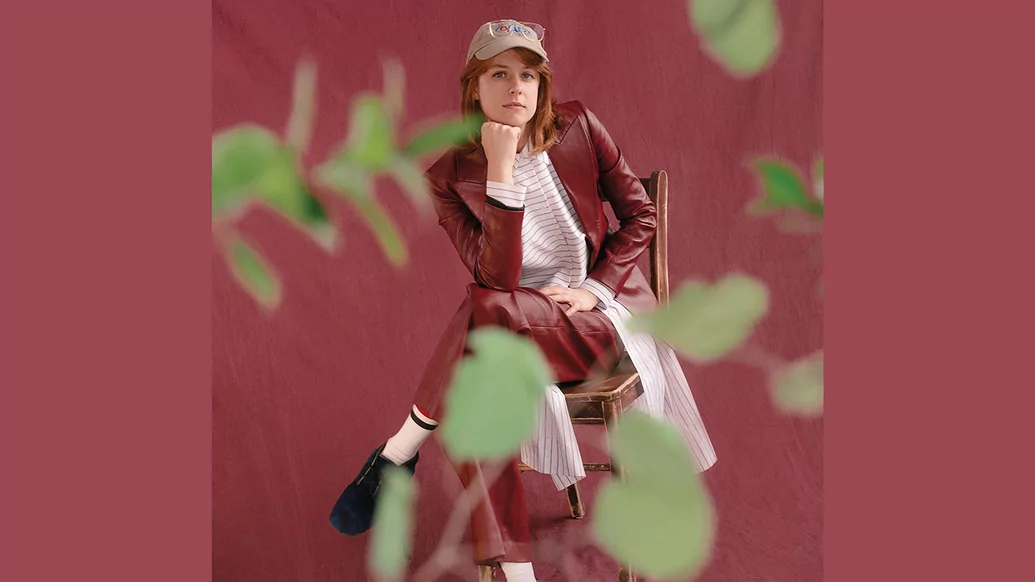
“It’s funny, because DJing and club music is so predicated on the cutting edge of technology, whether it’s speaker technology, or a CDJ, or whatever. But DJs themselves are often pretty dogmatically not into technology. They put more features into these boxes all the time. So why not try to use them, see what you can do with them?"
Participatory Culture
If DJing again in the States has been gratifying for Avalon, she’s less certain of the logistics of doing so in Europe. The current guidance for fully vaccinated US visitors entering the UK says that they will not need to self-isolate after arriving (as recently as July, a 10-day quarantine was mandatory). But advice changes frequently. And asymmetrical regulations across different countries makes DJing in multiple places across Europe particularly challenging.
“I always want to be optimistic,” she says. “Cases are going to be going down. Deaths are going to be going down. Governments are going to try and have things go back to normal and not just completely eradicate entire cross-sections of the economy anymore. I do have shows scheduled in the US, the UK and Europe. And I hope they happen — but I just don’t know!”
Speaking to Elissa Stolman for Resident Advisor, Avalon once said that her DJing, were it to be explained and broken down to the general public, would make her seem the opposite of a “vibeman”. This was understandable, but the assumption said less about Avalon than her presumed audience. Avalon’s methodical approach to organising her collection, using various CDJ functions, making what she calls “Cybernedits”, or remastering older records illustrated her comfort with being creative through applying technical know-how.
That this should seem unusual is one of electronic music’s persistently strange paradoxes. “It’s funny, because DJing and club music is so predicated on the cutting edge of technology,” says Avalon, “whether it’s speaker technology, or a CDJ, or whatever. But DJs themselves are often pretty dogmatically not into technology. They put more features into these boxes all the time. So why not try to use them, see what you can do with them?”
There are YouTube clips of Avalon offering instruction on, among other things, track filtering, hot cues and using an isolator. She is optimistic about making DJing more accessible by, say, dispelling the idea that leaning on technology might make the craft overly difficult or inauthentic.
“Something that I’ve noticed over the past 10 years of making music is there is so much of this ‘edutainment’ YouTube tutorial kind of thing going on. Consuming that [content] is very much what music fans do now. It’s a participatory thing. If you’re a music fan nowadays, it’s very natural to make it in some way. And be a fan of the whole thing, right? Not just going to a club and listening to a DJ and having it stop there. It’s like a cooking show: you can’t taste or smell the food, but it’s fun to have a close-up of someone’s hands, cutting a tomato.”


But there is, she says, a “dark side” to this participatory culture. Avalon and DJs like her operate in what, with surprising ardour, she calls a “hypercompetitive capitalist Thunderdome”, in which hobbies become hustles and “everything is a multi-level marketing pyramid scheme — and DJing is no different”. She says this as though the point is self-evident; her argument, however, echoes a central theme of Can Music Make You Sick?, a book published last year, written by George Musgrave and Sally Anne Gross.
It is a pessimistic study of the lives and prospects of today’s working musicians. Struggles with insecure incomes, status anxiety, serial overworking, the attention economy and discrimination are at the heart, the authors say, of an existential crisis among artists. The irony, as the book points out, is that more people than ever are making music with professional aspirations in an increasingly dysfunctional industry, which only makes these problems worse.
It’s surprising to hear a structural critique from someone whose career, from the outside at least, seems successful enough to be self-sustaining. “I’m not that big,” she says, “but I have come up through this kind of underground world, and I now feel like I’m peeking over the edge and looking more into the wider DJ economy of playing with people who are massive, right? And peeking over that means seeing that there are lots more things involved in this career that make me think, ‘I did not sign up for this, I don’t fucking like it, but you have to do it’.”
What sort of things, exactly? “It seems like, all the time, there is more required of you. And I don’t think this is reserved for people who are more famous than someone who’s just starting out. Everyone is pressured to participate more in the influencer-industrial complex — having a really popping social media account, building a lifestyle brand. I didn’t get into this to...” — she zones out slightly, shaking her head — “be worrying about that stuff.”
“One of the things that is different now, than, say, seven or eight years ago, is that there was a very healthy, critical and distributed independent wing of music media that was powerful. People went to Pitchfork, Resident Advisor and the blogosphere at large as a source for what is cool, new and good. All these things that I just mentioned still exist, but the power that they once had is gone. Now it seems that the focus and the attention is given to the people who already have it.
“The way that people find new music is not through independent critical entities that can disseminate it. For most people, it’s Spotify playlists. That sucks. Or related videos on YouTube, and other examples of big A algorithm, which is just a fucking shame. The end result is that the product is not as good. Algorithms select for virality; they don’t select for good music. Maybe there’s a tiny overlap in those two Venn diagram circles. But it’s a critic’s job to do that. That’s what they do. Algorithms aren’t good at that.”
She’s not entirely pessimistic. “There will always be a small sliver of the music-listening population that is always going to be really nerdy about music, whether that means that they are on the ILM [I Love Music] boards. Do you remember those?” She mentions other music forums — Sound Rodeo, 555-5555, the comments section on What.CD, Discord servers — as places she visits that cultivate committed, music-loving communities.

Healthy Ecosystem
In 2018 Avalon co-founded Buy Music Club, which collates and shares Bandcamp playlists. She runs it in her spare time with two friends, the music journalist Shawn Reynaldo and Jason Fellows. (Her own contributions include ‘Eternal Gratitude Crystals For Music 2018’ and ‘Gather More Wool In The Fall Of 2020’.) It may be, as she says, a “tiny, anti-algorithm thing”, but it’s still a way for music nerds like her to exert some influence over adventurous listeners.
What would a more healthy ecosystem look like, and how far away are we from it? Avalon begins talking about “web 2.0” and “web 3.0” — terms that refer respectively to the internet as it is now (dominated by large corporate platforms) and its next phase (which is decentralised through blockchain technology). She is wary about wading too deep into the subject; it remains controversial, especially around non-fungible tokens (NFTs), because of ongoing debates over economic benefits to artists versus ecological impacts. She thinks about how to summarise her position.
“Crypto needs a publicist,” she says. “The aesthetics of NFTs are, like, horrific, so it’s gonna be a little while before certain people get on board from an aesthetic point of view, and understand the real costs and sustainability of crypto. But things are so bad for artists right now that something is going to change. It might have to get a little bit worse than now in order for it to change. We’re still pretty early, but there’s also a lot of interesting stuff happening. I’m remaining optimistic and open-minded.”
What has made healthy conversations difficult, she thinks, is the “brick wall of information” from crypto itself and the strident debates it produces, as well as the limited amount of quality research and reporting. “Reading news stories coming from the music space about DAOs, crypto and NFTs, sometimes it comes across as being from a culture writer who’s used to only talking about where a song or an artist fits in the cultural and aesthetic landscape. You have to talk about actual technical shit. You have to do technical research and reporting.” Without that literacy, “it comes off as even more vapid and hollow, and like a scam”.
As familiar as Avalon seems with the tech world at large, it’s something from which she is increasingly estranged. Her reasons for ditching the industry after leaving San Francisco in the mid-2010s — she hated its “bro culture” and the community-gouging effects of venture-capital wealth, among many others — reflect the egalitarian principles she’s been living by as an independent artist. It’s easy enough to discern them in how she describes the way things are and the way they might (or ought to) go.
Another sign of Avalon’s detachment from her former life in Silicon Valley is how she spends her spare time. Besides gardening, her main pandemic hobby has been woodworking. “My hobbies now are very analogue,” she says. “On the last long flight I took, I started designing the dream DJ booth. So I have plans for that. I learned how to use computer-aided design software. But that’s still a fantasy right now — I will make that one day.”
.jpg.webp?itok=uNavnLn8)
Enriching Life
One of the themes of the conversation has been the uncertainty around whether Avalon could DJ to the same extent as before. She wavers between suggesting that her profession may no longer be viable and that, “to get woo-woo for a second”, it remains essential to “the powerful, transcendental, fun, necessary experience of people getting together in a room with other humans and listening to loud music, being with their friends and meeting new people.”
But if the past 18 months have shown her anything, it’s that there’s a full, enriching life outside of it, even if the costs have been unexpected and considerable.
“I’m realising how lovely it is to not be gone all the time,” she says. “To be able to have deeper, considered relationships with the people in my life. It also sucks that I’m so far away from all of my close friends in Berlin; I didn’t expect to be gone so long.”
Not long before we wrap up, we ask Avalon to show us (virtually) around the house. She’s speaking through her desktop, so she WhatsApps two photos of the guest bedroom, which she’s also using as a studio; the wires connecting her gear hang like ivy from the desk. Pale sunlight beams through the alcove window onto bare, white walls; some unpacked boxes are tucked into a recess. Their dog is asleep on the carpet. Avalon examines the photo she’s just sent. “Elmo’s even there! I didn’t realise he was there.” We talk about Elmo. “He’s a Havapoo. A Havanese Poodle mix,” she says beaming, her grin filling the screen. “He’s the best. He’s the perfect dog.”
Avalon picks Elmo up from the floor and cradles him, his woolly coat merging into her black vest. “He’s loving, affectionate and very smart. Hunter and I always joke about how if you’re good in this life, then maybe in the next one, you’ll be lucky enough to come back as a Havapoo being cared for by two lesbians.”
